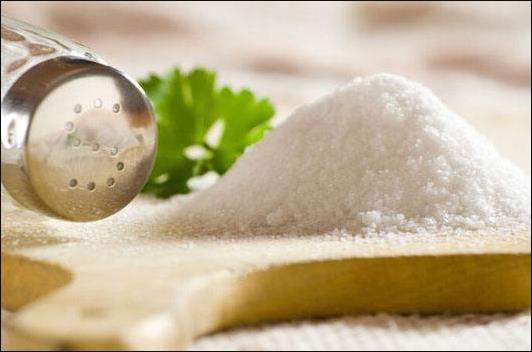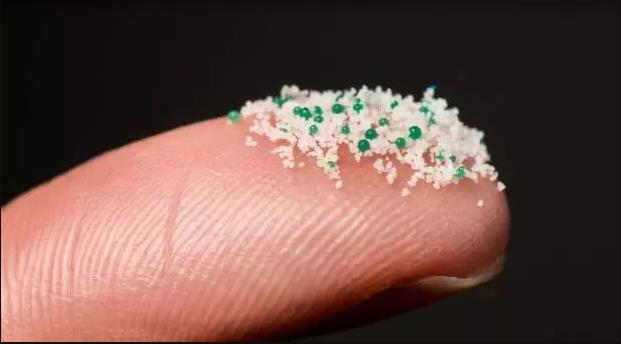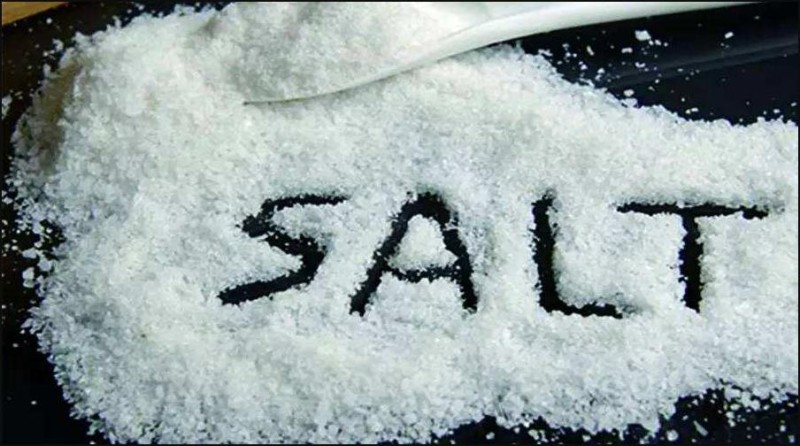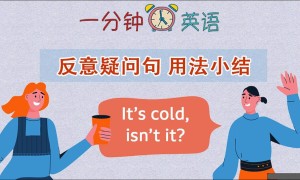塑料垃圾泛滥成灾已经给环境带来灾难,也威胁着人们的健康。由于塑料难以降解,会以微塑料的形式长久存在于食物链中,最终通过饮水和食物进入到我们的身体里。最新研究显示,就连我们每天都要摄入的食盐,也难逃塑料污染,你每年从食盐中吃进2000粒塑料,你敢相信吗?
A study published Tuesday (Oct. 16) in the journal Environmental Science and Technology found microplastics in more than 90% of the packaged food-grade salt—also known as table salt—for sale in stores.
美国《环境科学与技术》月刊10月16日发表的一篇研究报告发现,商店里出售的包装食品级盐(即食盐)中,有超过90%含有微塑料。

【小知识】什么是微塑料?
微塑料,是指粒径很小的塑料颗粒以及纺织纤维,现在在学术界对于微塑料的尺寸还没有普遍的共识,通常认为粒径小于5mm的塑料颗粒为微塑料。联合国海洋环境保护科学问题联合专家组(GESAMP)称其为“温柔杀手”。因为,微塑料能够被分解成细小的颗粒和碎片,混入土壤、水源以及动植物体内。
The team, from South Korea’s Incheon National University and Greenpeace East Asia, sampled 39 brands of salt harvested in 21 countries and regions. only three of the samples had no detectable microplastics.
韩国仁川国立大学和绿色和平东亚分部的研究团队对21个国家和地区的39份食盐进行了取样分析,只有3个样品没有可检测到的微塑料。
Microplastics are virtually everywhere. Sea salt and lake salt are made by evaporating water and harvesting the salt that remains. Plastic waste flows from rivers into those bodies of water, so it’s no surprise that the salt contains traces of it too. Scientists have been finding microplastics in salt for years, including in salt from countries and regions in Asia, Europe, and Africa.
微塑料实际上无处不在。海盐和湖盐都是通过将水分蒸发掉,获得剩下的盐分。废塑料从河流进入水体,因此食盐里也含有微量塑料就不奇怪了。多年来,科学家已在来自亚洲、欧洲和非洲各地的食盐中发现了微塑料。
But the latest study goes a step further, finding that looking at where the salt was produced is a good indicator of how much plastic pollution is coming from that particular region.
但最新的研究更深入一步,发现查看食盐的生产地就能很好地说明当地塑料污染的严重程度。

The 39 samples came from Australia, Belarus, Brazil, Bulgaria, Chinese mainland and Taiwan, Croatia, France, Germany, Hungary, India, Indonesia, Italy, Korea, Pakistan, Philippines, Senegal, Thailand, the UK, the US, and Vietnam.
39份食盐样品分别来自澳大利亚、白俄罗斯、巴西、保加利亚、中国大陆和台湾地区、克罗地亚、法国、德国、匈牙利、印度、印度尼西亚、意大利、韩国、巴基斯坦、菲律宾、塞内加尔、泰国、英国、美国和越南。
Of these, 28 were sea salts, nine were rock salts, and two were lake salts.
其中,28份样品是海盐,9份是岩盐,2份是湖盐。
only three of the samples were microplastics-free: a refined sea salt from Taiwan, a refined rock salt from Chinese mainland, and an unrefined sea salt in France.
只有3份食盐样品中不含微塑料:来自中国台湾的精制食盐、来自中国大陆的精制岩盐和来自法国的未提炼的海盐。
Salt made in Asia had by far the most microplastics of all the samples, which correlates with where plastic most often enters the ocean. Nine of the top 10 sea salts sampled with the highest amount of microplastics came from Asia.
到目前为止,所有样品中含微塑料最多的食盐均出自亚洲,这与亚洲的塑料通常流入大海有关。10种微塑料含量最高的食盐中有9种都来自亚洲。
“The results indicate that not only is Asia a hot spot of global plastic pollution, as previous studies have suggested, but also that sea salt can be a good indicator of the magnitude of [microplastics] pollution in the surrounding marine environment,” the researchers write.
研究人员写道:“研究结果不仅表明,亚洲是全球塑料污染最严重的危险地区——就像以前的研究所显示的那样,同时也表明海盐是衡量周边海洋环境(微塑料)污染程度的一个很好的指针。”

based on their results, the researchers estimate that the average adult ingests about 2,000 pieces of microplastic in salt per year. But, they write, that still only represents a fraction of the microplastics a person is likely to consume.
研究人员根据研究结果估计,一个成年人平均每年仅通过食盐就吃进约2000粒微塑料。不过,这可能只占一个人微塑料摄入量的很小一部分。
Previous research revealed that microplastics have also been found in tap water, mollusks, and both indoor and outdoor air. All together, those four pathways add up to an average 32,000 pieces of microplastic ingested per year per person. Inhaling microplastics in the air is by far the largest contributor—people ingest roughly 80% of the microplastics that enters their bodies through this route.
此前研究显示,自来水、软体动物和室内外空气中都含有微塑料。再加上食盐,一个成年人平均每年从以上4种途径中摄入3.2万粒微塑料。从空气中吸入微塑料目前来看占比最大,人们摄入的微塑料中有大约80%都是空气吸入的。
Given those other sources of exposure, microplastics in table salt amounts to about 6% of a person’s total microplastics ingestion, the researchers write.
研究人员写道,考虑到摄入微塑料的其他途径,人们从食盐中摄入的微塑料占到全部摄入量的大约6%。
Microplastics have also been found in beer and fish.
此外,啤酒和鱼类中也发现了微塑料。







